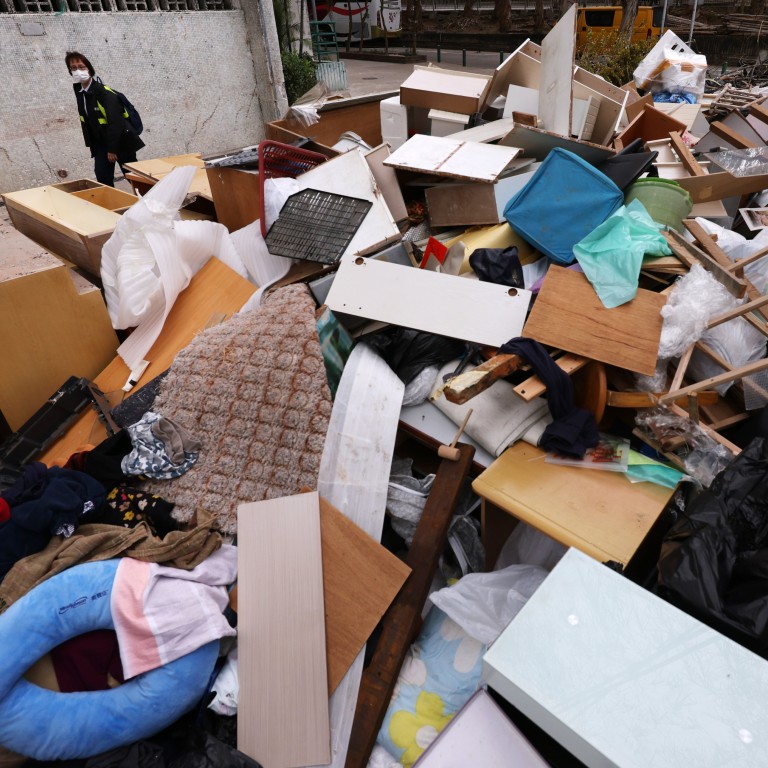
Get public on side for Hong Kong waste-charging plan
- Hong Kong authorities have time and again failed to implement the scheme and the reason is clear: the average person has yet to be convinced of its viability
It is disappointing to learn that authorities have scaled back a planned trial run of Hong Kong’s pay-as-you-throw scheme days before its April 1 start.
Officials must redouble efforts to make best use of the months left before the important policy is implemented citywide in August.
Decades in the making, the system requiring all rubbish to be collected in prepaid bags costing 11 HK cents (1 US cent) per litre has already been delayed twice.
The most recent setback was in January, when Secretary for Environment and Ecology Tse Chin-wan said a limited test focused on government buildings would be done first, providing “real cases” so a confused public could see what to expect.
‘Too early’ to judge whether to change Hong Kong’s waste-charging plan: John Lee
However, last Friday, his department revealed that only one government office block in West Kowloon and two public housing estates would be among the 14 premises involved.
The other locations include private residential buildings, shopping centres, residential care homes and restaurants.
Environmentalists and lawmakers have said the sample will be too small to provide results broad enough to ease public doubts.
Yesterday, Chief Executive John Lee Ka-chiu called on Hongkongers to give the government time to monitor the test.
He said results to be presented to Legco in May or June would help authorities “pragmatically design the way forward”.
But while there has been plenty of publicity about the city’s rapidly shrinking landfill space, confusion about waste-charging underscores the urgent need for more education about how the system will work.
Hongkongers ‘unprepared’ for April 1 trial run of waste-charging scheme
Lee downplayed concerns about potential damage to his administration’s credibility, voicing optimism that the public would respond positively to seeing the scheme “smoothly carried out” and public opinions addressed.
The government must find the best path. The waste-charging scheme will affect every household and business in the city. It is the first major livelihood issue authorities have faced since the city’s recent implementation of Article 23 national security legislation.
At the same time, they must continue to work on recycling and waste reduction systems. Even if the scheme is widely adopted flawlessly, the city’s waste woes require longer-term solutions.

